An intervention teacher specializes in supporting and guiding students who are academically struggling or need extra help to reach their potential. These teachers play a key role in identifying and addressing students’ special educational needs, ensuring they receive the services they need to succeed. Teachers work with students, parents, and other educators to develop individualized plans that address the student’s unique learning challenges.
They use a variety of instructional strategies and interventions to help students overcome their learning difficulties. These interventions can include one-on-one instruction, group work, special materials, revision projects, and individualized learning plans.They should have good interpersonal skills and be able to build relationships with students who may be stressed or conflicted. Patience and the ability to motivate and inspire students are essential to a good teacher’s intervention.
They understand various students’ learning difficulties, teaching, and research as barriers to meeting their needs. These teachers also provide professional development and support to classroom teachers, providing ideas and resources to meet the needs of students with difficulties. This article is a guide to becoming an intervention teacher.
Who Is An Intervention Teacher?
Intervention teacher specialize in supporting and assisting students with academic or behavioral difficulties. They work with students, teachers, and parents. Their main goal is to help students overcome obstacles and achieve academic success.
They play an important role in helping struggling students reach their potential. Through assessment, personal intervention, collaboration, progress monitoring, and effective communication, they create a supportive and engaging learning environment where all students are welcome. They are willing to develop academically and socially.
An important part of being an intervention coach is Professional development. They keep up with the latest research, evidence-based practice, and teaching. They attend educational workshops and seminars to develop their knowledge and skills to support students effectively.
An important role of the teacher is to assess students’ learning and identify areas where they need additional support. They use various assessment tools and techniques to gather information about students’ strengths and weaknesses. This information helps them create intervention plans and set specific learning goals for each student.
Qualifications You Need
Becoming an intervention teacher often requires education, experience, and special skills. While specific requirements may vary by institution and location, some of the most common qualifications needed for this position are:
- Education: Undergraduate training or intervention is usually required. Some schools may prefer or require a bachelor’s degree in special education or another field.
- Teaching Certificate: You must have a valid teaching certificate or license for the level and subject. Certification requirements can vary depending on where you live, so check with your local board of education for specific requirements.
- Special Education: Special education, learning difficulties, or special education interventions are helpful. This information will help you understand the unique needs of students who need extra support.
- Experience: While not required, tutoring is often a plus, especially when working in special education or with students with special needs. Experience working with various students, including those with learning disabilities or behavioral disorders, can be helpful.
- Knowledge Of Intervention Strategies: Knowledge of evidence-based intervention strategies and methods is essential. You must understand the various skills, tools, and resources used to meet student’s academic, behavioral, and social needs.
- Effective Communication: Effective communication skills are needed for teachers. You should communicate and coordinate with students involved in the intervention, their parents or guardians, other teachers, and other professionals.
- Patience And Empathy: Working with students who need intervention often requires patience and understanding. These qualities will help you create a supportive learning environment. Build relationships with your students and parents.
- Problem-Solving Skills: Teachers should be proficient in analyzing student data, identifying needs, and developing intervention plans. Strong problem-solving skills will allow you to adapt and modify strategies to meet students’ needs.
Please note that specific qualifications may vary depending on the school or district you are applying to. Researching the policies and guidelines provided by your local or local board of education is a good idea.
What Are the Key Responsibilities of an Intervention Teacher?
Intervention teachers play an important role in supporting students struggling to learn or facing special needs in their learning. The primary function of this role includes various activities designed to identify student needs, develop intervention plans, and monitor progress. Some important parts of the intervention coach are described.
Assessment And Data Analysis
An important role of the intervention coach is to assess students’ skills and abilities to identify areas where they may have difficulty. It includes performing various assessments, reviewing data, and using diagnostic tools to better understand each student’s strengths and weaknesses. This data allows teachers to identify specific learning opportunities and determine appropriate intervention strategies.
Individualized Instruction
The Intervention teacher creates a personalized program based on each student’s specific needs based on the assessment results. These plans outline clear objectives, strategies, and response plans to address identified challenges.Teachers adapt instruction, materials, and resources to accommodate learning differences and to keep students self-motivated.
Small Group Or One-On-One Instruction
Intervention teacher often work with students in small groups or provide one-on-one instruction to facilitate learning. They create a supportive environment where students are cared for and engaged in conversation.
By providing individualized instruction, they solve personal problems, strengthen the skill base, and help students succeed in meeting their academic goals.
Collaboration With Classroom Teachers
Effective collaboration with classroom teachers is essential for teacher intervention. They work closely with classroom teachers to implement strategies related to curriculum and classroom goals. This collaboration ensures consistent interaction and enhanced classroom instruction. They can also provide guidance and resources to support classroom teachers in meeting the diverse needs of students.
Progress Monitoring And Evaluation
To determine the effectiveness of the intervention, teachers regularly monitor and evaluate student progress. This process includes collecting and analyzing data, using appropriate metrics, and monitoring personal development. By monitoring performance, intervention coaches can timely adjust interventions, celebrate successes, and resolve issues that may arise.
Stakeholder Communication
Effectively manages communication with multiple stakeholders, including teachers, parents, administrators, and support staff. They share information about achievement, provide updates on intervention strategies, and discuss student needs.
Teachers build a collaborative relationship with stakeholders, encouraging collaboration to empower students and enabling everyone to create a successful student.
Professional Development
Teachers continue professional development to keep up with the latest research, teaching, and intervention strategies. They attend seminars, conferences, and workshops to improve their knowledge and skills. They can provide effective support and follow best practices in education through continuous learning and development.
Self Study For Intervention Teachers
Becoming an intervention coach requires knowledge, skills, and experience. While formal education and training can provide a solid foundation, self-study is also important for broadening your understanding of intervention strategies and techniques. Follow these tips to educate yourself and improve yourself.
Understanding The Role Of An Intervention Teacher
Start by researching and learning about the teacher’s role and expectations. Learn about the types of interventions commonly used, the student population you can work with, and the goals of the intervention program.
Study Educational Psychology
Take an in-depth look at psychology studies to understand the fundamentals of learning and behavior. Research interests will include learning theories, cognitive development, motivation, and assessment strategies.
Learn About Different Learning Disabilities And Special Needs
Research the different learning difficulties and special needs teachers often face, such as dyslexia, ADHD, autism spectrum disorder, and behavioral disorders. Learn about features, issues, and appropriate interventions for each situation.
Research Intervention Strategies And Methods
Explore evidence-based intervention strategies and techniques used in education – research, such as differentiated instruction, multidisciplinary teaching, behavior management techniques, and Individualized Education Programs.
Enhance Assessment And Data Analysis Knowledge
Learn about the various assessment tools and methods used to identify student needs and measure progress.
Compliance With Education Policy And Legislation
Learn about current education policy and legislation regarding special education and related services. Learn about the rights and protections available to students with special needs.
Salary Of An Intervention Teacher
Salaries for teachers can vary depending on their location, experience level, qualifications, and the type of school (public or private) where they work. Affected teachers earn $40,000 to $65,000 per year. However, this number may vary. Salaries for beginner teachers with minimal experience and qualifications will usually be at the lower end of the range, while wages for teachers with advanced degrees and years of experience will be near the end.
Conclusion
To be an intervention teacher, it is important to deeply understand students’ individual needs, use inquiry-based teaching strategies, and maintain open communication with parents and students. Monitoring progress, resilience, and supervision is essential to support all students’ development and academic success.







Leave a Reply